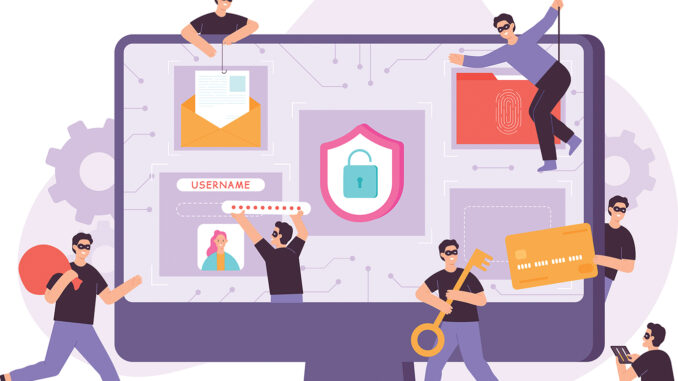
We live in a world where we are spending more time online than we ever have in the past. We spend time socially, shopping, and even banking online. With an increase in online presence, there has also been an increase in financial fraud cases. Knowing how to detect fraud early on and ways to prevent it, can save you from a costly mistake. Throughout this article, I’ll discuss common types of financial fraud, warning signs of it, and how you can be prepared for it.
Financial fraud can take on many different forms. It can vary from mail, internet, phone, and even social media scams. One type of fraud occurs by individuals trying to collect your personal information such as your social security number, bank account number, address, and date of birth. These scammers will utilize this information to hack into your bank accounts or even take a loan out under your name. Common types of this fraud include identity theft, ACH fraud, credit card fraud, cryptocurrency scam, debt collection scam, and fake checks. As a good rule of thumb, if it sounds too good to be true it usually is.
Another form of fraud occurs when a scammer tries to get you to send them money. With the rise of generative artificial intelligence, this form of fraud has become more and more common due to artificial intelligence being able to replicate another human. This often takes place as romance scams, imposter scams, grandchildren or elder scams, and employment scams. These individuals will act as if they are your loved one, grandchildren, or employer, and ask you to send them money. They’ll often say the reason is because they’ve gone through a recent tragic event or need help getting out of trouble. Instead of trying to collect your personal information, they are trying to receive payment from you. This is often in the form of wire transfers, mobile payment apps, and cryptocurrency. Knowing the warning signs of fraud can help you spot it ahead of time to prevent you from falling victim to it.
There can be several different warning signs depending on the type of fraud, but the following are a few common warning signs to look out for:
•Notification of address, password, or information changes to your bank account or credit card
•Unreasonable denial of credit
•Bills or bank statements are no longer arriving at your mailing address
•Unrecognizable charges on your credit or debit card
•Differing email address compared to the company it is claiming to be
•Text messages from your bank asking for your account number/routing number
•Urgent phone calls from an unknown number claiming to be someone you know
•Phone calls asking for your personal information claiming to be the Social Security Administration
This is far from an exhaustive list, but if you detect a warning sign, respond appropriately and don’t make any rash decisions.
Although it is almost impossible to completely prevent yourself from being targeted by fraud or a scam, you can take a few different steps to be prepared for when it does happen to you. The first step is to educate yourself on the different types of fraud and scams that are out there. By being aware you will be better prepared to detect fraud when it occurs. Also, you can frequently check your account activity on your credit card and bank account statements. This will help you spot any charges that may have been made by someone else on your behalf. By identifying unauthorized transactions early, you can cancel your card and prevent someone from continuing to use it. If you don’t want to manually go in and check your accounts, you can set up alerts via text or email that notify you when a transaction has taken place, a certain spending threshold has been spent, or when your account balance gets low.
When faced with a situation where you believe fraud has taken place like via a phone call or email, do not respond to it and go straight to the source. When someone tries to impersonate your bank, family, or loved one, they often will try to create a sense of urgency, so your brain is fogged, and you don’t have time to use proper judgment. This makes it crucial for you to not panic and be certain this request is legitimate.
While there is a risk to our evolving digital world, I am still optimistic that the benefits outweigh the negatives. Educating yourself and loved ones on the types of fraud, warning signs, and being prepared for when it happens can help you in this digital age.
-by Jacob Young, AAMS®
Financial Advisor, RJFS
313 East 10th Ave. • Bowling Green, KY 42101 • Phone: 270-846-2656
Ben Smith Life Compass Financial is not a registered broker/dealer and is independent of Raymond James Financial Services, Inc. Securities offered through Raymond James Financial Services, Inc. Member FINRA/SIPC. Investment advisory services offered through Raymond James Financial Services Advisors, Inc.






